How we plan learning
MixedMixed These guidelines outline how our teachers translate our curriculum intentions into a purposeful sequence of lessons. Our implementation ensures that pupils not only gain a comprehensive understanding of the content but also achieve the expected standards. Planning identifies how we organise knowledge into a meaningful sequence. Our teachers, being intimately familiar with their pupils, determine suitable learning opportunities to meet their needs, shaping a curriculum that is relevant, aspirational, and unique to our students.
You can read the detail of our planning process in this document – Planning Guidelines
You can read how we deliver this within mixed-aged classes here – Mixed-aged Planning Strategy
We aim to provide an inspiring, interesting, and aspirational learning experience. We strive for a curriculum that is creative, relevant, and broad, focusing on the holistic development of each student. Inclusivity is a fundamental aspect, ensuring accessibility to meaningful education for all learners.
We follow a 2-year rolling programme that ensures all pupils learn the necessary content, without any duplication. You can see how this is organised here:
FINAL 2 year rolling programme (2024 – 25 is Year B)
Planning: Planning is designed to be adaptable, readily responding to the evolving interests and needs of the children. In the Early Years Foundation Stage (EYFS), we build upon children’s interests to create stimulating learning opportunities to ensure we teach the full EYFS framework. In Years 1–6, teachers follow our rolling programme, integrating subjects into carefully constructed themes or topics. Teachers include various components in each topic, such as a relevant book, spiritual, social, moral, and cultural development (SMSC and PSHCE), problem-solving, art, music, ICT, DT (Design and Technology), children’s personal focus, and opportunities for deep learning. Knowledge is well sequenced, ensuring that there are many opportunities for pupils to remember facts and secure their understanding.
Time is utilised flexibly to meet the individual needs of children, allowing adjustments in the length of topics and lessons. The planning process prioritises high expectations, standards, and progress for every child, fostering opportunities for deep learning, creativity, relevance, and overall enjoyment.
Planning Process: Our curriculum planning involves layers:
Policy
This signals our curriculum intention. It describes our aspirations and expectations, and what is important at our schools.
Progression statements
These identify the discreet body of knowledge in each subject, and what we expect children to know at each stage of school. It is matched to the expectations of the National Curriculum and other schools in the STAR MAT, and also builds opportunities that are unique to our school. It ensures that knowledge is well sequenced in our planning.
Click here to read our curriculum
Theme Overviews
These demonstrate how teachers organise learning into meaningful themes. Often, these will utilise cross-curricular links in order to provide a context for pupils and make learning meaningful, but they will also identify aspects that may be taught in isolation. They enable us to demonstrate the breadth of our curriculum. They also show how our curriculum is unique and of an exceptional standard, and delivers our curriculum aims.
Medium-Term Plans
These plans organise learning sequentially so that children build up knowledge progressively and attain the expected standard. They show how subjects are organised over time and identify specific learning intentions. They are used by teachers to determine the content for short term plans, and can be used by subject leaders to evaluate the effectiveness of subject planning.
Short-Term Plans
These are used by teachers to determine how the medium term plans will be delivered each week or day. They are personal to teachers and are an organisational and delivery tool. As such they may be amended at short notice in light of daily assessment and are for personal use only.
